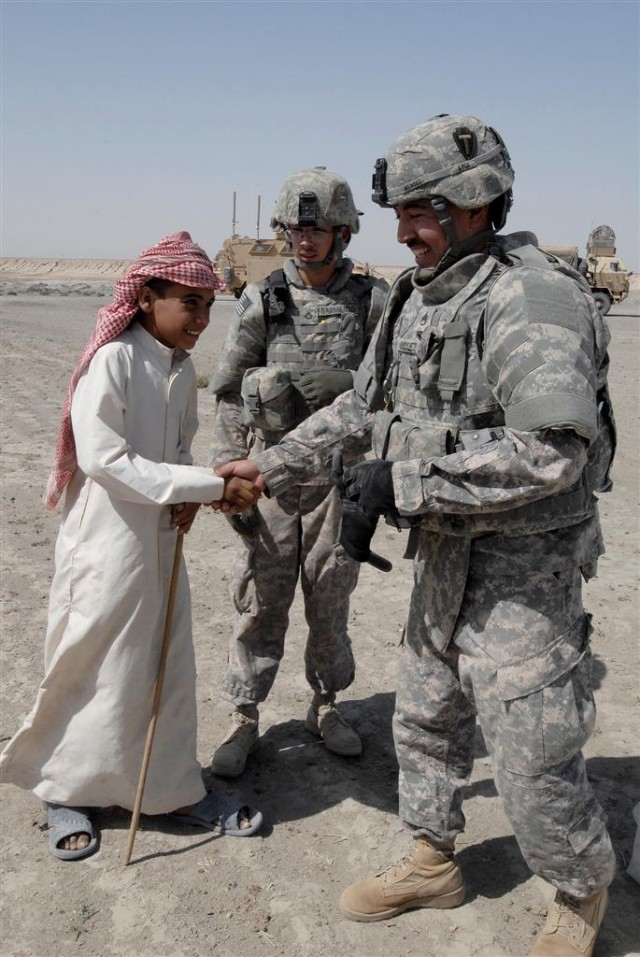DHI QAR PROVINCE, Iraq -Soldiers have reduced rock throwing incidents by children here over the last few months by participating in civil military operations and educating Bedouin families about the "safety first" campaign.
Members of the 287th Sustainment Brigade, the 167th Combat Sustainment Battalion and Shaykh Saleh Fahad met with tribal elders to explain that Soldiers can no longer throw candy, toys and water from moving vehicles because of safety concerns. The Soldiers want the local Iraqi children to know they still want to help and interact with them, just in a safer way.
"This CMO was important because we have talked to kids in the schools about not throwing rocks at the trucks but most of the Bedouin children do not attend school. They have not received the "Safety First" message about staying off of the road," said Master Sgt. Alexander T. Parker, the 287th Sust. Bde. CMO noncommissioned officer in charge. "We want them to know that if they stop throwing the rocks we will stop by on a more frequent basis to help with some of their needs."
One of the goals of the CMO mission is to teach the local children not to throw rocks in frustration when Soldiers don't throw items from the vehicles. The 287th Sust. Bde. conducts one or two CMO missions a week targeting the Bedouins, a group of migrating tribesman, and provides them with water, mattresses and toys for their children.
Parker, a Barrington, Kan. native, said the best part of the CMO mission is seeing a quantitative difference in the area. He said there were 24 incidents of rock throwing last January but there were no incidents in the last 45 days because of the CMO missions.
"It's not often in civil affairs work that we get to see a quantitative result. You can hand someone a blanket, they look at you smiling but you don't know what they do when they turn around," Parker said. "Here, we can actually see a quantitative result because the incidents have dropped; the attitude toward Coalition forces has really changed in the last five months."
Parker said he felt the Coalition forces message was presented stronger because Fahad accompanied the Soldiers to the different families so the tribe can see Coalition forces working with their leadership to achieve goals.
"It's important for them to see he has involvement in the project as well," Parker said. "It's not just us out there. It was us and the Shaykh working together."
Fahad, who is in charge of several small tribes in a 20-mile area, said what the Coalition forces are doing is excellent because the Bedouins are traveling all the time. He said meeting the Coalition forces makes them feel like people care about them.
"It's very nice for me to be involved in this kind of activity, it makes me feel proud to guide them through this tribe and stop by some of the tents," Fahad said. "It gives them good evidence that I care about the people. Makes them feel like someone from the Coalition forces care about the people too."






Social Sharing